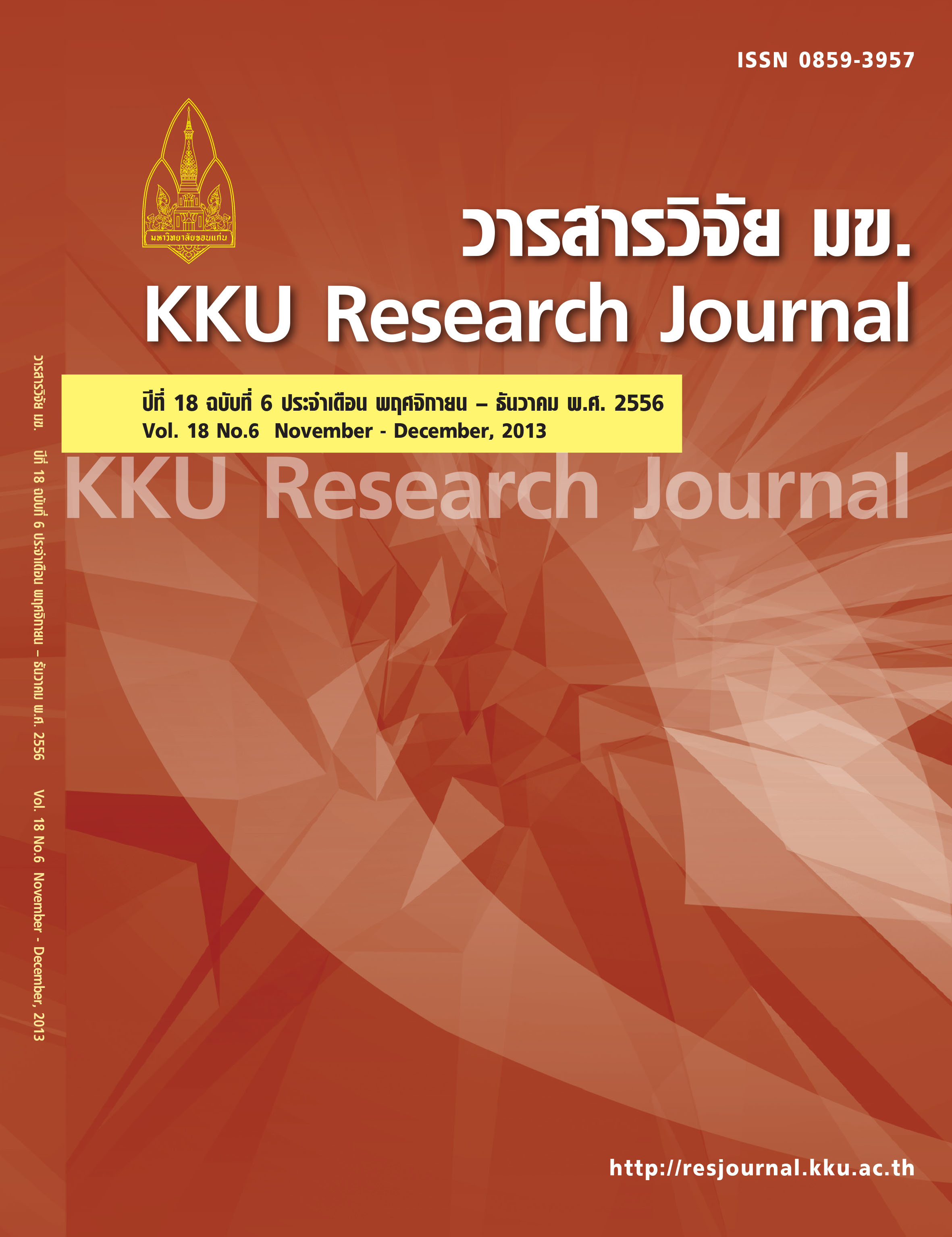Avian malaria: transmission blocking strategies for the malaria parasite in domestic chicken gallus gallus domesticus and applications for human malaria disease control.
Main Article Content
Abstract
The malaria disease is caused by the parasitic protozoa in the genusPlasmodium. Of the malaria parasites infecting birds, Plasmodium gallinaceumis the causative agent of the malaria disease in domestic chickens (Gallus gallus domesticus). Infections with P. gallinaceumin domestic chickens may cause severe pathology and death that contributes to substantial economic loss to poultry industry in Thailand. Despite its veterinary significance, P. gallinaceum has shared a number of biological characteristics to the human malaria parasites and has therefore served as a research tool for identification of drug targets and vaccine candidates for the human malaria diseases. The goals of this review were to provide an overview of the life cycle of the avian malaria parasite P. gallinaceum and the progress toward developing transmission blocking strategies for the avian malaria disease. The applications of the transmission blocking tools such as drugs and vaccines for the human malaria diseases were also discussed.
Article Details
How to Cite
Pattaradilokrat, S. (2017). Avian malaria: transmission blocking strategies for the malaria parasite in domestic chicken gallus gallus domesticus and applications for human malaria disease control. Asia-Pacific Journal of Science and Technology, 19(1), 150–160. retrieved from https://so01.tci-thaijo.org/index.php/APST/article/view/82914
Section
Research Articles


